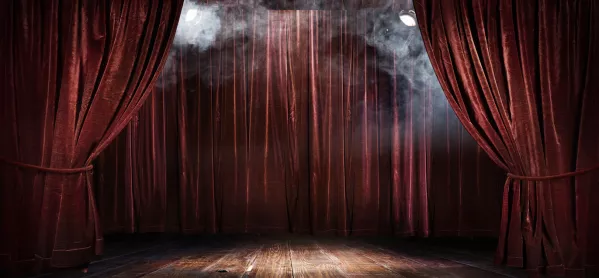Do you remember the first time? (As Pulp sang)
There would have been fear; the fear you get when everything you do and say is on display to a room of strangers. The fear known mostly only to people if they are a comic, an actor, singer or best man.
It’s the fear of being vulnerable, up there at the front. Alone.
The first ever lesson I taught
I can recall vividly the first-ever lesson I taught: as the frost thickened on the window panes, my cold hands fumbled at the bottom of my bag for a USB stick containing my lesson plan on command verbs. Forty-six slides and three hours of preparation would see me through 50 minutes with Year 9.
I taught the lesson. Objectives were copied down, though less likely learned.
The quality was questionable, the delivery stilted, but at points they listened; perhaps out of politeness rather than engagement, but they actually did a little bit of work. It felt a little like learning to drive; from an initial fear of this uncontrollable machine, you begin to bask in your own power to steer that machine.
I was hooked. What a feeling: achievement, purpose, mindfulness and even a little adrenaline. It was addictive. And remains so.
Addicted to teaching
For this is an effect of teaching that we often do not talk about: how addicted we all are to it. There is a high it inculcates within us, and the deeper into your career you get, the more you need it.
Like the tears of the clown, we clamour for the stage; we need the buzz.
I have met headteachers who have fought to keep their one lesson of teaching a week the way a smoker clings to their morning roll-up: “That room is my sanctuary from the adults - I need to teach.”
Then Covid came. It wrecked families, economies, plans and politics. And it wrecked our teachers’ connection to their classes.
It took away from us the runner’s high we all need, that jolt of endorphin that reminds us why we chose this mad profession. We readied our planned questions and threw them out to blank Zoom screens...nothing came back.
We began to miss the minor behavioural misdemeanours and cheek of the class clown, because that cheek reminded us that the reason we started teaching was to feel connection.
Connection to individuals and connections to whole classes. The connection to another’s growth, and our role within that growth.
Teachers are performers
Are we selfish for missing this? Quite possibly.
Because we teachers have big egos, and those egos feed on the fuel of the classroom, so when Covid came, it starved us of sustenance.
We were no longer who we thought we were because the way we valued ourselves had changed, shifted.
Those of us with the biggest “teacher egos” starved the most; there were no thriving classrooms to remind us of our own importance in the world, of why we mattered.
With no crowds to applaud our efforts, the past metrics of how we measure ourselves had been disrupted; as the global snowglobe was shaken by something beyond man’s power, we teachers no longer could get our kicks.
We had become obsolete at worst, inauthentic at best. For what is a classroom without walls, and what is a class without students?
As the world teeters on a return to lockdown, virtual schools and all of the apparatus that accompanies that, say a quiet prayer for us teachers and our egos: a performer without their audience is a tragic show.
Andy Bayfield is the teaching and learning leader at an international school in Malaysia




